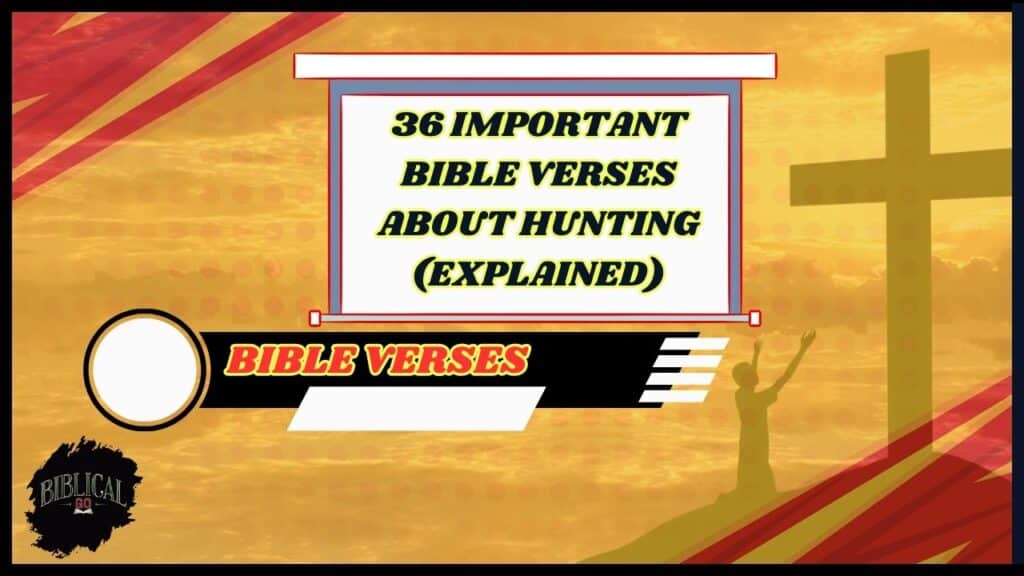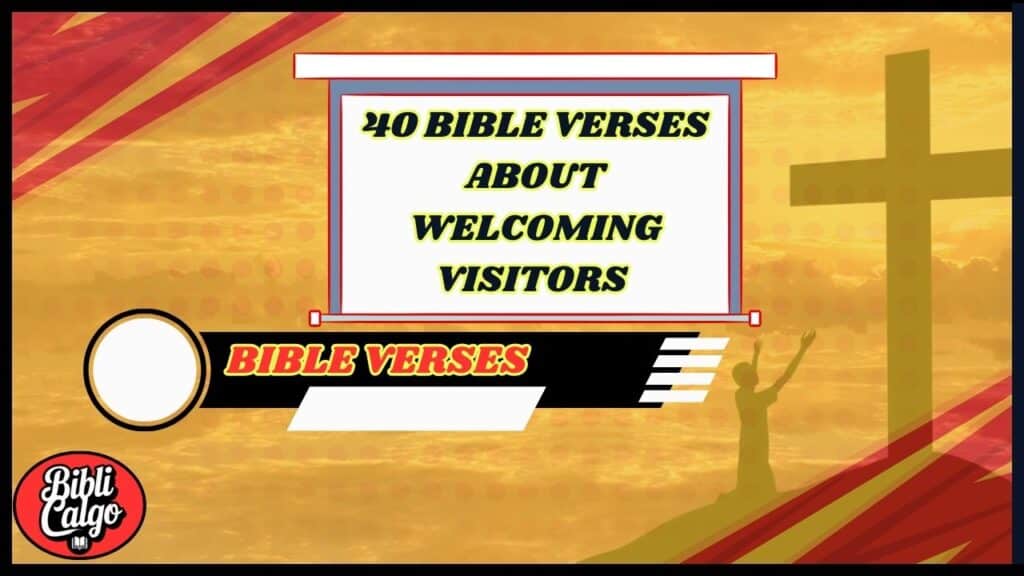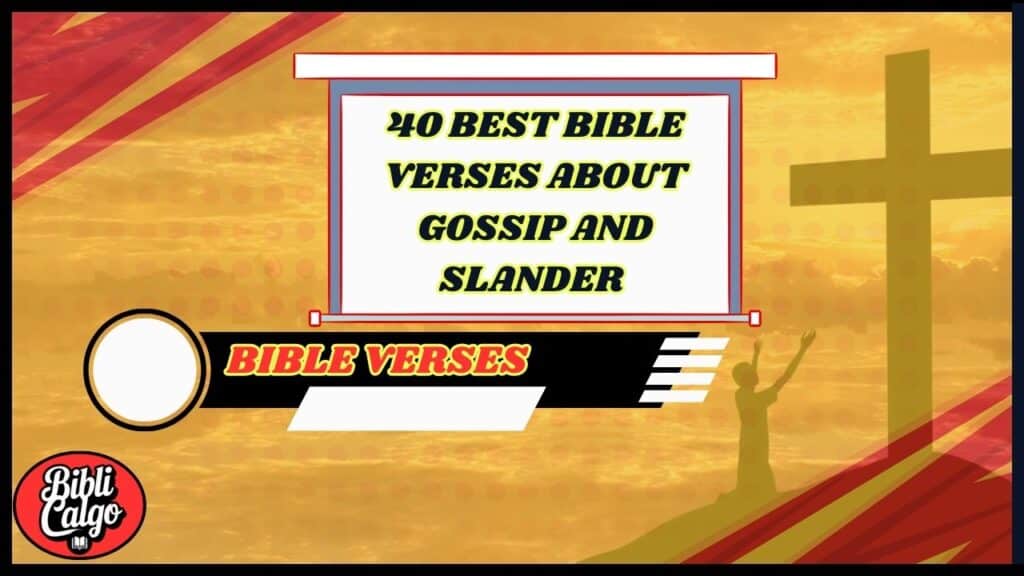Bible Verses About Hunting: Hunting has deep roots in biblical history, serving as both a means of survival and a metaphor for spiritual truths. From Nimrod, described as “a mighty hunter before the Lord” to Esau, who hunted game for his father, the Bible contains numerous references to hunting that reveal God’s perspective on this ancient practice.
These hunting-related verses offer profound wisdom for modern hunters who seek to honor God while pursuing game. They remind us that all creation belongs to the Lord, and we are called to be responsible stewards of His abundant provision.
Scripture illuminates how hunting can be done ethically, with respect for life, and in a way that acknowledges God as the ultimate provider of all we need. Let’s explore what the Bible says about hunting, wildlife management, and our relationship with creation.
Also Read: 38 Bible Verses About Sisters In Christ (Explained)
Hunting as Provision and Sustenance
Genesis 27:3
“Now then, take your weapons, your quiver and your bow, and go out to the field and hunt game for me.”
This verse comes from Isaac’s request to Esau to hunt game for a meal. It demonstrates that hunting was an accepted and necessary means of providing food in biblical times. For today’s hunters, this verse reminds us that hunting for sustenance has deep historical and biblical roots when done with purpose.
Genesis 25:27
“When the boys grew up, Esau became a skillful hunter, a man of the field, while Jacob was a quiet man, dwelling in tents.”
This description of Esau highlights hunting as a legitimate skill and livelihood. While the verse doesn’t make moral judgments about hunting itself, it shows that being known as a hunter was part of one’s identity. Modern hunters can find affirmation that developing hunting skills is a worthwhile pursuit when balanced with other virtues.
Leviticus 17:13
“Any one also of the people of Israel, or of the strangers who sojourn among them, who takes in hunting any beast or bird that may be eaten shall pour out its blood and cover it with earth.”
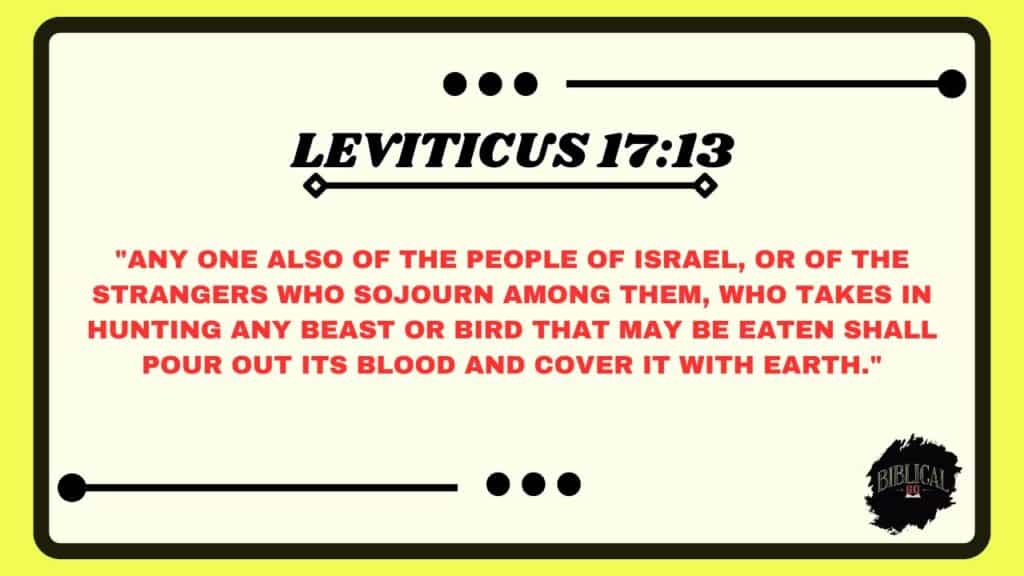
God instructed the Israelites about proper handling of animals taken in hunting, particularly regarding blood. This shows that while hunting was permitted, it came with responsibilities to treat the animal with respect. Today’s hunters can honor this principle through ethical hunting practices and making use of the entire animal.
Proverbs 12:27
“Whoever is slothful will not roast his game, but the diligent man will get precious wealth.”
This proverb contrasts laziness with diligence, using hunting as an example. It suggests that merely hunting is insufficient; one must also properly prepare and use what is caught. Contemporary hunters can apply this by ensuring they fully utilize their harvest and avoid wastefulness.
Also Read: 37 Bible Verses About the Wicked Being Punished (Explained)
Stewardship and Respect for Creation
Genesis 1:28
“And God blessed them. And God said to them, ‘Be fruitful and multiply and fill the earth and subdue it, and have dominion over the fish of the sea and over the birds of the heavens and over every living thing that moves on the earth.'”
God grants humans dominion over animals, but this comes with responsibility. “Dominion” implies stewardship, not exploitation. Modern hunters can reflect this by practicing conservation, following wildlife management principles, and respecting seasons and limits.
Psalm 24:1
“The earth is the LORD’s and the fullness thereof, the world and those who dwell therein.”
This verse reminds us that all creation ultimately belongs to God. When hunting, we should remember we are interacting with God’s property, not simply taking what we want. This perspective encourages hunters to approach their activity with humility and thanksgiving.
Deuteronomy 22:6-7
“If you come across a bird’s nest in any tree or on the ground, with young ones or eggs and the mother sitting on the young or on the eggs, you shall not take the mother with the young. You shall let the mother go, but the young you may take for yourself, that it may go well with you, and that you may live long.”
This passage demonstrates early wildlife conservation principles. By protecting breeding animals, the Israelites ensured species survival. Today’s hunters should similarly respect conservation laws that protect breeding populations and vulnerable species.
Psalm 104:24-25
“O LORD, how manifold are your works! In wisdom have you made them all; the earth is full of your creatures. Here is the sea, great and wide, which teems with creatures innumerable, living things both small and great.”
This psalm celebrates God’s diverse creation. When hunting, we encounter the intricate beauty of nature that reflects God’s wisdom. Hunters today might take moments to appreciate the ecosystems they participate in, recognizing God’s design in all aspects of nature.
The Ethics of Hunting
Exodus 23:5
“If you see the donkey of one who hates you lying down under its burden, you shall refrain from leaving him with it; you shall rescue it with him.”
While not directly about hunting, this verse demonstrates God’s concern for animal welfare. Ethical hunters should prioritize clean, humane kills that minimize suffering and never pursue wounded animals without making every effort to recover them.
Proverbs 12:10
“Whoever is righteous has regard for the life of his beast, but the mercy of the wicked is cruel.”
This proverb teaches that righteous people show care for animals under their control. Hunters can apply this principle by showing respect for all game animals, avoiding unnecessary suffering, and treating harvested animals with dignity.
Deuteronomy 12:15
“However, you may slaughter and eat meat within any of your towns, as much as you desire, according to the blessing of the LORD your God that he has given you.”
God permits eating meat, including game meat, as a blessing. This verse gives permission for hunting for food while acknowledging God as the source of this provision. Hunters today can express gratitude for successful hunts, recognizing them as divine provision.
Proverbs 6:5
“Save yourself like a gazelle from the hand of the hunter, like a bird from the hand of the fowler.”
This metaphorical verse uses hunting imagery to convey spiritual wisdom about avoiding danger. It acknowledges the hunter’s skill and the prey’s elusiveness as part of natural order. Contemporary hunters might reflect on the intelligence and adaptations of wildlife that make hunting a genuine challenge requiring skill and patience.
Also Read: 35 Important Bible Verses About Storms (Explained)
Hunting in Biblical Narratives
Genesis 10:9
“He was a mighty hunter before the LORD. Therefore it is said, ‘Like Nimrod a mighty hunter before the LORD.'”
Nimrod is described as a mighty hunter “before the LORD,” suggesting his hunting prowess was acknowledged by God. While later traditions added negative connotations to Nimrod, the biblical text itself doesn’t condemn his hunting. Today’s hunters can strive to develop skill and proficiency that honors God.
Genesis 27:30-31
“As soon as Isaac had finished blessing Jacob, when Jacob had scarcely gone out from the presence of Isaac his father, Esau his brother came in from his hunting. He also prepared delicious food and brought it to his father.”
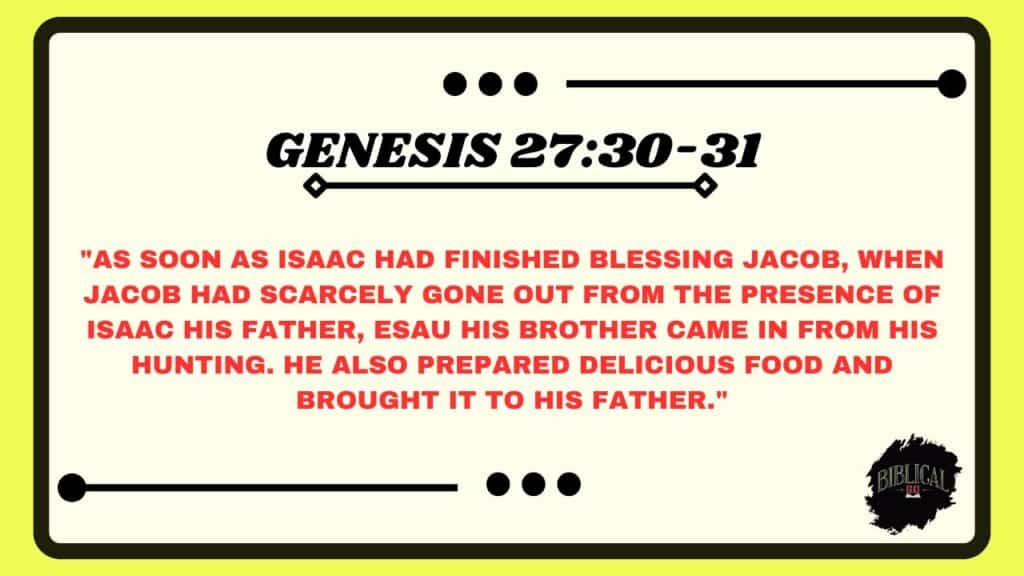
This passage shows Esau returning from a successful hunt, fulfilling his father’s request for game meat. Though part of a complex narrative about deception and birthright, the hunting itself is portrayed as an honorable endeavor. Modern hunters can view their activity as a way to provide for family, connecting to ancient traditions.
1 Samuel 24:11
“See, my father, see the corner of your robe in my hand. For by the fact that I cut off the corner of your robe and did not kill you, you may know and see that there is no wrong or treason in my hands. I have not sinned against you, though you hunt my life to take it.”
David uses hunting metaphorically to describe Saul’s pursuit of him. This metaphor shows that hunting imagery was culturally understood and could be applied to human conflicts. Today, we can recognize that hunting terminology has shaped our language and perspectives beyond literal hunting contexts.
2 Samuel 23:20
“And Benaiah the son of Jehoiada was a valiant man of Kabzeel, a doer of great deeds. He struck down two ariels of Moab. He also went down and struck down a lion in a pit on a day when snow had fallen.”
Benaiah’s defeat of a lion demonstrates exceptional courage and skill. While not typical hunting, this encounter with wildlife showed valor. Modern hunters might reflect on the courage sometimes required in wilderness encounters, while maintaining appropriate respect and caution with dangerous animals.
Also Read: 36 Bible Verses About Removing People From Your Life
Hunting Metaphors and Spiritual Lessons
Psalm 91:3
“For he will deliver you from the snare of the fowler and from the deadly pestilence.”
God is portrayed as a protector against those who would trap or hunt us. This metaphor uses hunting imagery to communicate spiritual protection. Hunters today might consider how their understanding of trapping and pursuit gives them unique insight into this biblical metaphor.
Psalm 124:7
“We have escaped like a bird from the snare of the fowlers; the snare is broken, and we have escaped!”
Like the previous verse, this psalm uses hunting imagery to describe spiritual deliverance. The detailed understanding of how birds escape from traps would have resonated with people familiar with hunting. Contemporary hunters can appreciate how their knowledge of wildlife behavior deepens their understanding of such scriptures.
Psalm 140:5
“The arrogant have hidden a trap for me, and with cords they have spread a net; beside the way they have set snares for me.”
David uses hunting imagery to describe the dangers he faces from enemies. This metaphor would be particularly vivid to those familiar with hunting techniques. Today’s hunters might reflect on how traditional hunting knowledge connects them to the original context of scripture.
Jeremiah 16:16
“Behold, I am sending for many fishers, declares the LORD, and they shall catch them. And afterward I will send for many hunters, and they shall hunt them from every mountain and every hill, and out of the clefts of the rocks.”
God uses the metaphor of hunting to describe how He will bring judgment. This indicates divine authority over hunting activities. While the context is judgment, modern hunters can recognize that their activity is sometimes used in scripture to illustrate God’s sovereignty and purposes.
Laws and Limitations on Hunting
Leviticus 11:2-3
“Speak to the people of Israel, saying, These are the living things that you may eat among all the animals that are on the earth. Whatever parts the hoof and is cloven-footed and chews the cud, among the animals, you may eat.”
God provided specific guidelines about which animals could be eaten. This shows divine interest in what humans hunt and consume. Modern hunters, whether following these specific dietary laws or not, can appreciate that God cares about what we harvest from nature.
Deuteronomy 14:4-5
“These are the animals you may eat: the ox, the sheep, the goat, the deer, the gazelle, the roebuck, the wild goat, the ibex, the antelope, and the mountain sheep.”
This passage specifically permits eating several wild game species, confirming hunting these animals was acceptable. Contemporary hunters of deer and similar species can note that their quarry is specifically mentioned as permissible food in scripture.
Deuteronomy 12:20-21
“When the LORD your God enlarges your territory, as he has promised you, and you say, ‘I will eat meat,’ because you crave meat, you may eat meat whenever you desire. If the place that the LORD your God will choose to put his name there is too far from you, then you may kill any of your herd or your flock, which the LORD has given you, as I have commanded you, and you may eat within your towns whenever you desire.”
God permits eating meat according to desire, not just necessity. This suggests that hunting for food, even when alternatives exist, can be appropriate. Modern hunters can be assured that pursuing game for food, even when not absolutely necessary for survival, has biblical precedent.
Deuteronomy 15:22
“You shall eat it within your towns. The unclean and the clean alike may eat it, as though it were a gazelle or a deer.”
Wild game like gazelle and deer are referenced as standard food sources familiar to the audience. This normalization of wild game consumption supports the view that hunting for food was a regular part of life. Today’s hunters continue this ancient tradition of harvesting wild protein sources.
Also Read: 35 Important Bible Verses About Overcomer
Hunting and Character Development
2 Timothy 2:22
“So flee youthful passions and pursue righteousness, faith, love, and peace, along with those who call on the Lord from a pure heart.”
While not directly about hunting, this verse uses the language of pursuit and fleeing concepts familiar to hunters. The disciplines required in hunting patience, self-control, and perseverance can develop character qualities that transfer to spiritual growth.
1 Corinthians 9:26-27
“So I do not run aimlessly; I do not box as one beating the air. But I discipline my body and keep it under control, lest after preaching to others I myself should be disqualified.”
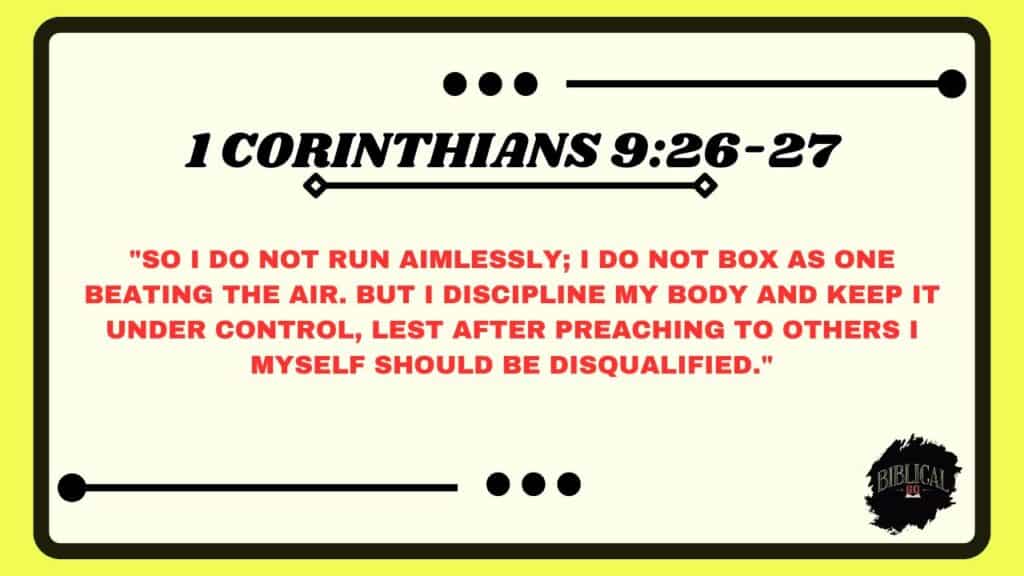
Paul uses athletic metaphors to describe spiritual discipline. Similarly, hunting requires discipline, focus, and self-control. Modern hunters can view the skills developed in hunting careful preparation, patience, and precision as training that can strengthen character in other areas of life.
Proverbs 21:20
“Precious treasure and oil are in a wise man’s dwelling, but a foolish man devours it.”
This proverb contrasts wise management of resources with foolish consumption. Responsible hunters practice conservation, taking only what they need and can use. Today’s ethical hunters can embody wisdom by respecting limits, seasons, and sustainability principles.
Ecclesiastes 3:1-3
“For everything there is a season, and a time for every matter under heaven: a time to be born, and a time to die; a time to plant, and a time to pluck up what is planted; a time to kill, and a time to heal…”
This passage acknowledges that killing (which would include hunting) has its appropriate time and place within God’s order. Modern hunters can recognize that hunting seasons reflect this principle, providing times when harvesting animals is appropriate and times when wildlife should be left to reproduce and flourish.
Also Read: 34 Bible Verses About Blooming Where You Are Planted
God’s Provision Through Wildlife
Genesis 9:3
“Every moving thing that lives shall be food for you. And as I gave you the green plants, I give you everything.”
After the flood, God explicitly gives animals to humans for food. This divine permission includes wild game that must be hunted. Hunters today can view their activity as accessing a provision explicitly granted by God.
Psalm 104:27-28
“These all look to you, to give them their food in due season. When you give it to them, they gather it up; when you open your hand, they are filled with good things.”
This psalm recognizes God as the ultimate provider for all creatures. Hunters should acknowledge that even their successful hunts depend on God’s provision of wildlife. This perspective encourages gratitude rather than an attitude of entitlement about harvesting game.
Matthew 6:26
“Look at the birds of the air: they neither sow nor reap nor gather into barns, and yet your heavenly Father feeds them. Are you not of more value than they?”
Jesus points to wildlife as evidence of God’s provision. While hunters participate in the cycle of predation, they can recognize God’s hand in maintaining the populations they hunt. This verse encourages trust in God’s provision, whether through hunting or other means.
Psalm 50:10-11
“For every beast of the forest is mine, the cattle on a thousand hills. I know all the birds of the hills, and all that moves in the field is mine.”
God claims ownership of all wildlife. Hunters should remember they are pursuing animals that ultimately belong to God, which promotes humility and stewardship. This perspective encourages ethical hunting practices that respect God’s creation.
Also Read: 38 Important Bible Verses About Resilience (Explained)
Hunting Skills and Human Relationships
Genesis 27:5
“Now Rebekah was listening when Isaac spoke to his son Esau. So when Esau went to the field to hunt for game and bring it…”
This verse shows how hunting was integrated into family relationships and obligations. Esau’s hunting was connected to honoring his father. Today’s hunters often maintain similar traditions, passing down hunting knowledge through generations and sharing harvested game with family and community.
Genesis 27:19
“Jacob said to his father, ‘I am Esau your firstborn. I have done as you told me; now sit up and eat of my game, that your soul may bless me.'”
Though Jacob was being deceptive, this verse shows how sharing hunted game was connected to blessing and relationship. The provision of wild meat was significant enough to be associated with blessing. Today, sharing harvested game can similarly strengthen bonds and express care for others.
Proverbs 27:25
“When the grass is gone and the new growth appears and the vegetation of the mountains is gathered…”
This verse about seasonal changes reflects the knowledge needed for successful hunting understanding natural cycles and animal patterns. Modern hunters develop similar environmental awareness, reading the landscape and understanding wildlife behavior throughout changing seasons.
Ecclesiastes 9:12
“For man does not know his time. Like fish that are taken in an evil net, and like birds that are caught in a snare, so the children of man are snared at an evil time, when it suddenly falls upon them.”
This verse uses hunting and fishing analogies to describe human vulnerability. Understanding hunting gives insight into these biblical metaphors about life’s uncertainties. Hunters today might reflect on how the unpredictability they experience in the field mirrors life’s broader uncertainties.
Also Read: 37 Amazing Bible Verses About Sunsets (Explained)
Conclusion: Bible Verses About Hunting
These 36 Bible verses reveal that hunting has a legitimate place in Scripture when practiced with reverence for God’s creation, ethical consideration for animals, and gratitude for His provision. The Bible neither glorifies nor condemns hunting outright, but instead provides principles for engaging with wildlife in ways that honor the Creator.
From Genesis to the New Testament, we see hunting portrayed as a means of provision, a metaphor for spiritual truths, and an activity governed by divine wisdom.
These verses encourage modern hunters to approach their pursuit with humility, recognizing all creation belongs to God, and with responsibility, ensuring their practices are sustainable and ethical.
As we reflect on these passages, we’re reminded that hunting, like all human activities, should be done to glorify God. Whether you hunt for food, wildlife management, or recreation, these biblical principles offer guidance for practicing this ancient pursuit in ways that respect both the Creator and His creation.
Practical Applications for Hunters
- Create a hunter’s prayer journal with these verses to reflect on before and after hunting trips
- Share game meat with those in need as an act of biblical stewardship
- Teach younger generations both hunting skills and the biblical principles that should guide them
- Form a faith-based hunting group that combines outdoor pursuits with biblical discussion
- Incorporate thanksgiving prayers into your hunting traditions, acknowledging God as provider
- Study conservation principles that align with biblical stewardship of creation
- Display meaningful hunting-related verses in your hunting cabin or processing area
Frequently Asked Questions: Bible Verses About Hunting
Does the Bible approve of hunting?
The Bible acknowledges hunting as a legitimate means of obtaining food and doesn’t condemn ethical hunting. Multiple passages reference hunting neutrally or positively, especially when done for provision and with respect for the animals.
What does the Bible say about hunting just for sport?
While the Bible doesn’t directly address recreational hunting, it does emphasize proper use of harvested animals and respect for life. This suggests hunters should have purpose beyond the mere thrill of the chase, making good use of what they harvest.
How can Christians hunt ethically according to the Bible?
Biblical principles suggest ethical hunting includes: using what you harvest, minimizing animal suffering, following conservation guidelines, expressing gratitude to God, respecting property boundaries, and sharing abundance with others.
Did Jesus hunt or eat wild game?
While the Bible doesn’t specifically mention Jesus hunting, he did eat fish and likely consumed other common foods of his time. As a Jewish man, Jesus would have followed dietary laws that permitted many wild game species.
What biblical figures were hunters?
Esau is the most prominent hunter mentioned in the Bible. Nimrod is described as “a mighty hunter before the LORD.” While not specifically called hunters, other biblical figures like David demonstrated skill in protecting flocks from predators.
Read more knowledgeable blogs on Biblical Go

Piper McMillan is a devoted writer and Bible enthusiast, offering insightful guides on Bible verses. Her blog provides practical interpretations and reflections, helping readers deepen their faith and understanding of Scripture through accessible and inspiring content.

